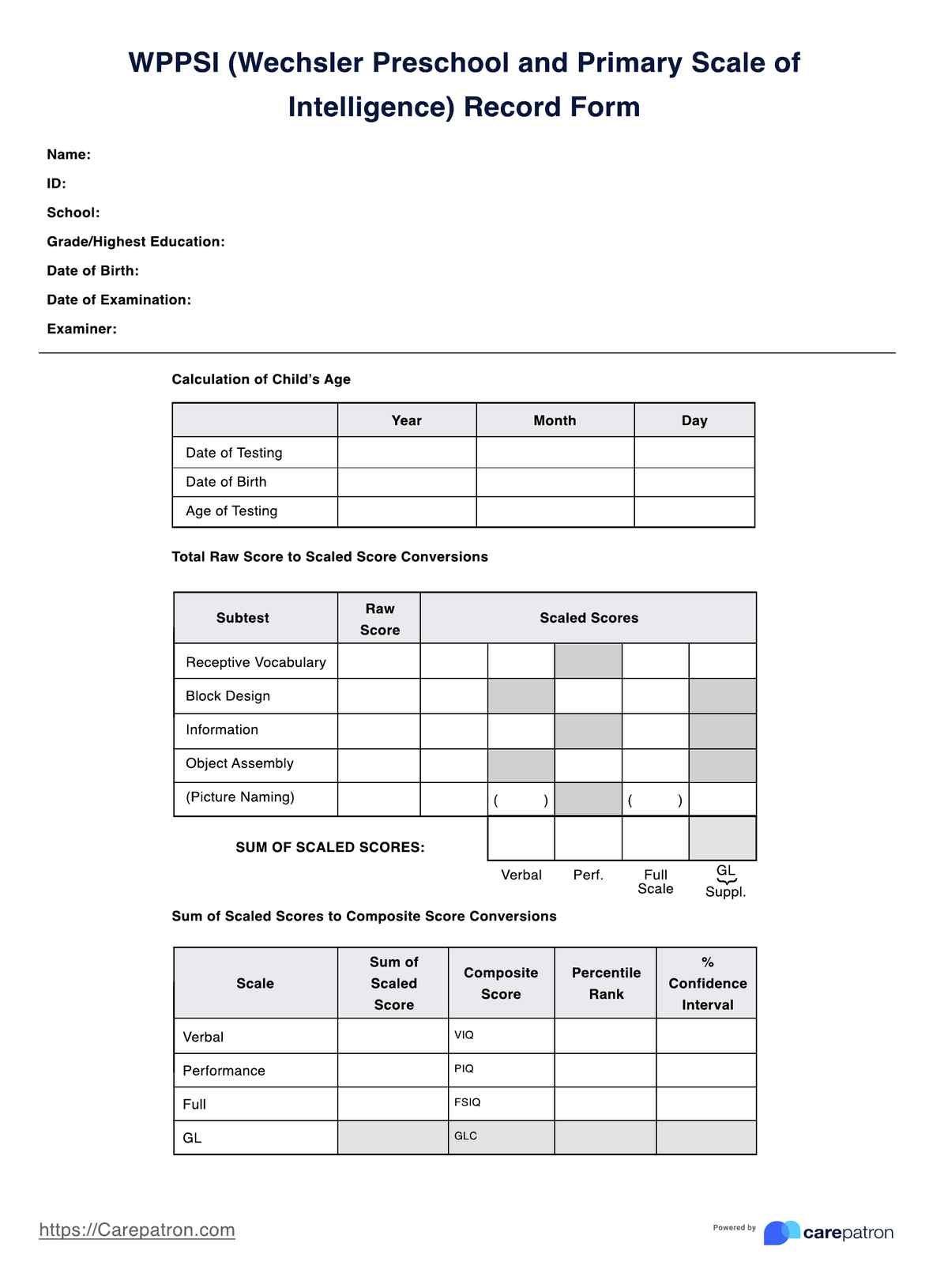The Wechsler Preschool and Primary Scale of Intelligence (WPPSI) assessment aims to measure the cognitive abilities of young children between the ages of two years, six months, and seven years and seven months. It provides valuable insights into a child's intellectual strengths and weaknesses, aiding in early identification of developmental delays, educational planning, and intervention strategies.

WPPSI
WPPSI is an intelligence test for children ages 2.6 to 7.5. It measures cognitive abilities in 4 areas: Verbal Comprehension, Perceptual Reasoning, Working Memory, and Processing Speed.
WPPSI Template
Commonly asked questions
The administration time for the WPPSI assessment varies depending on the child's age, attention span, and individual circumstances. On average, it takes approximately 45 minutes to 1.5 hours to complete the assessment.
The WPPSI assessment should be administered by trained professionals, such as psychologists, neuropsychologists, school psychologists, or other qualified individuals familiar with standardized testing procedures. These professionals have the expertise to administer and interpret the assessment results correctly.
EHR and practice management software
Get started for free
*No credit card required
Free
$0/usd
Unlimited clients
Telehealth
1GB of storage
Client portal text
Automated billing and online payments











